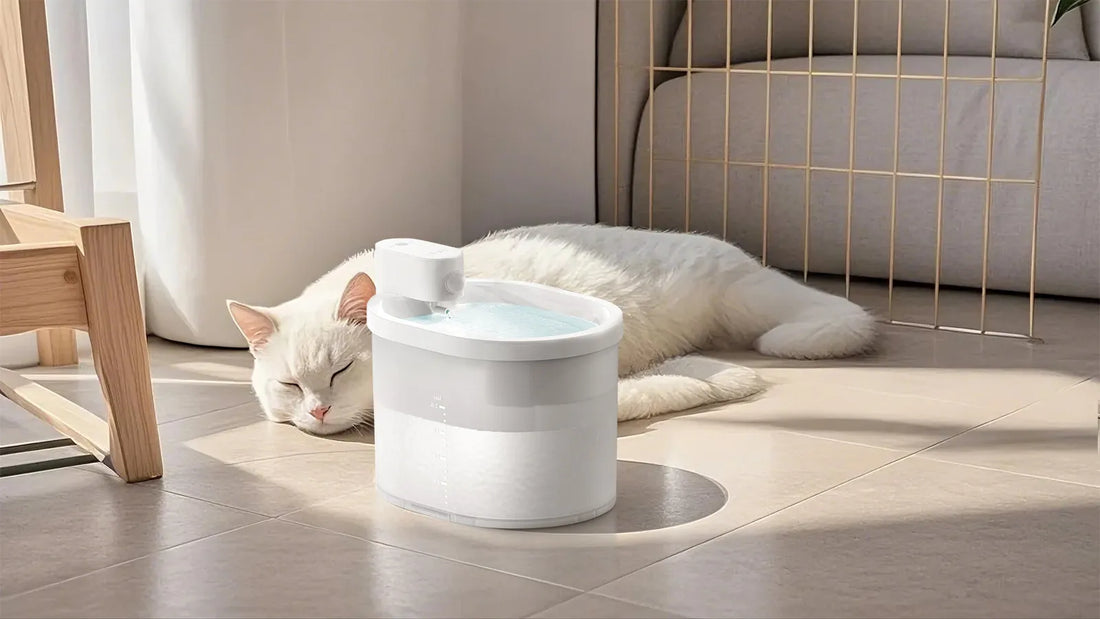If you've noticed your older cat peeing outside the litter box, you're not alone. This behavior can be frustrating and concerning for pet owners, but understanding the underlying causes is the first step toward finding a solution. In this article, we'll explore the potential reasons for this behavior and provide practical tips to help your feline friend get back on track.
Understanding the Behavior
When an older cat starts peeing outside the litter box, it's essential to consider both medical and behavioral factors. Cats are creatures of habit, and any deviation from their usual routine can signal an issue that needs attention.
Medical Causes
One of the most common reasons for this behavior is a medical condition. Older cats are more prone to health issues that can affect their urinary habits. Conditions such as urinary tract infections, kidney disease, diabetes, and arthritis can make it difficult or painful for your cat to use the litter box. If your cat is experiencing discomfort, they may associate the litter box with pain and avoid it altogether.
Behavioral Causes
Behavioral issues can also lead to inappropriate urination. Stress, anxiety, and changes in the household environment can all contribute to this problem. Older cats may be more sensitive to changes, such as the introduction of a new pet, moving to a new home, or even rearranging furniture. Additionally, some cats may develop a preference for a different type of litter or litter box, leading them to seek out alternative spots.
Identifying the Problem
To address the issue effectively, it's crucial to identify the root cause. Start by observing your cat's behavior and noting any changes in their routine or environment. If you suspect a medical issue, consult your veterinarian for a thorough examination. Your vet may recommend blood tests, urinalysis, or other diagnostic procedures to rule out underlying health problems.
Environmental Factors
If medical issues are ruled out, consider environmental factors that may be contributing to the behavior. Evaluate the location, size, and type of litter box you're using. Older cats may have difficulty accessing a litter box with high sides or one that's located in a hard-to-reach area. Ensure that the litter box is clean and easily accessible, and consider providing multiple boxes in different locations.
Stress and Anxiety
If stress or anxiety is suspected, try to identify and address the source of your cat's discomfort. Provide a calm and stable environment, and consider using pheromone diffusers or calming supplements to help reduce anxiety. Spending quality time with your cat and providing enrichment activities can also help alleviate stress.
Implementing Solutions
Once you've identified the cause, you can take steps to address the issue and encourage your cat to use the litter box again. Here are some practical solutions to consider:
Medical Treatment
If a medical condition is identified, follow your veterinarian's treatment plan. This may include medications, dietary changes, or other interventions to manage the condition and alleviate discomfort. Regular check-ups are essential to monitor your cat's health and ensure that the treatment is effective.
Litter Box Adjustments
Make sure the litter box is suitable for your older cat. Choose a box with low sides for easy access, and consider using a larger box if your cat has mobility issues. Experiment with different types of litter to find one that your cat prefers. Keep the litter box clean by scooping daily and changing the litter regularly.
Environmental Modifications
Create a comfortable and stress-free environment for your cat. Provide multiple litter boxes in quiet, easily accessible locations. Avoid placing the litter box near noisy appliances or in high-traffic areas. If your cat has difficulty climbing stairs, place a litter box on each level of your home.
Behavioral Training
If your cat has developed a habit of peeing outside the litter box, you may need to retrain them. Gently guide your cat to the litter box after meals or naps, and reward them with praise or treats when they use it correctly. Avoid punishing your cat for accidents, as this can increase stress and worsen the behavior.
Preventing Future Issues
To prevent future incidents, maintain a consistent routine and monitor your cat's health and behavior. Regular veterinary check-ups can help catch potential health issues early. Keep the litter box clean and accessible, and provide a stable and enriching environment for your cat. By addressing the underlying causes and implementing effective solutions, you can help your older cat maintain good litter box habits and enjoy a happy, healthy life.
If your older cat is peeing outside the litter box, don't despair. With patience, understanding, and the right approach, you can help your feline companion overcome this challenge and continue to thrive in their golden years.

![[🎃Halloween Sale]UAHPET Stainless Steel Self-Cleaning Cat Litter Box](http://www.uahpet.com/cdn/shop/files/1-cat-litter-box.jpg?v=1759128420&width=1600)












